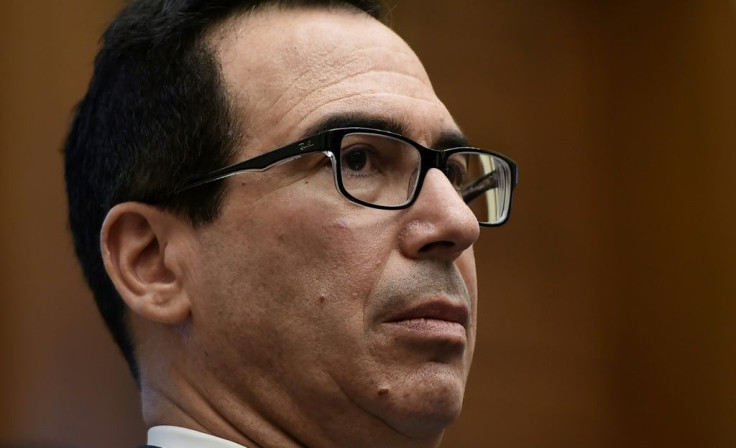Will Trump Bail Out Travel, Oil Industries? Mnuchin Says Don't Call It That

KEY POINTS
- The travel industry has been hit hard by the spread of the coronavirus, and the shale oil industry has been hurt by a spat between Saudi Arabia and Russia
- U.S. coronavirus infections number at least 1,050 with more than 30 deaths
- WHO declared the outbreak a global pandemic and urged countries to take action to stem spread of the disease
Treasury Secretary Steven Mnuchin Wednesday denied the administration’s emergency assistance plan amounts to a bailout as the number of U.S. coronavirus cases mounted and the World Health Organization declared the outbreak a pandemic.
U.S. equity markets dove toward bear territory again after the White House said it was considering low- or no-interest loans for companies hammered by the outbreak like the travel industry and oil and gas producers.
The White House reportedly is considering a national disaster declaration and invoking the Stafford Act, making $40 billion in aid available immediately.
U.S. coronavirus infections numbered at least 1,050 with more than 30 deaths. Globally, there were more than 121,500 confirmed cases and 4,373 deaths, prompting the WHO to declare a pandemic as officials urged countries to take action to reverse the course of the disease.
Mnuchin met with House Speaker Nancy Pelosi Tuesday as the House readied an economic stimulus package for dealing with the situation. A vote was set for Thursday, but it was unlikely any final action could be taken in the Senate before Congress recesses for a week.
“This is not a bailout. This is considering providing certain things for certain industries. Airlines, hotels, cruise lines," Mnuchin told lawmakers at a House Appropriations subcommittee hearing. During the 2008 financial crisis, the Bush and Obama administrations propped up the banking and automotive industries, but the moves ran into a populist backlash.
Mnuchin said the Trump administration is looking to implement actions that would help the broader economy like mandating paid sick leave, cutting payroll taxes and possibly postponing the April 15 tax-filing deadline.
"We are looking at providing substantial relief to certain taxpayers and small businesses who will be able to get extensions on their taxes," Mnuchin said. "We think we can provide over $200 billion of liquidity into the economy by delaying certain tax payments."
But, Mnuchin said, certain industries may need help.
“I want to be clear: This is not bailouts. We are not looking for bailouts. But there may be specific industries that are highly impacted by travel and have issues with lending,” Mnuchin said. “Loan guarantees are a very effective way of making sure the government is paid back without putting the government at risk.”
Paul Winfree, who served as deputy director of the White House Domestic Policy Council under Trump and is now at the conservative think-tank, Heritage Foundation, disagreed.
“It sounds like a bailout to me,” Winfree told the Washington Post. “We are going to have to see specifics, but when you are dealing with special treatment given to one industry or sector of the economy, that is, almost by definition, a bailout.”
Bob Hockett, a public policy expert at Cornell University, said refusing to call an action a “bailout” doesn’t really change the nature of the move.
“If they’re going to do bailouts -- even if they don’t call it that -- why not do it for line workers and retail workers who don’t have a lot of savings or paid leave time?” he asked.
© Copyright IBTimes 2025. All rights reserved.





















